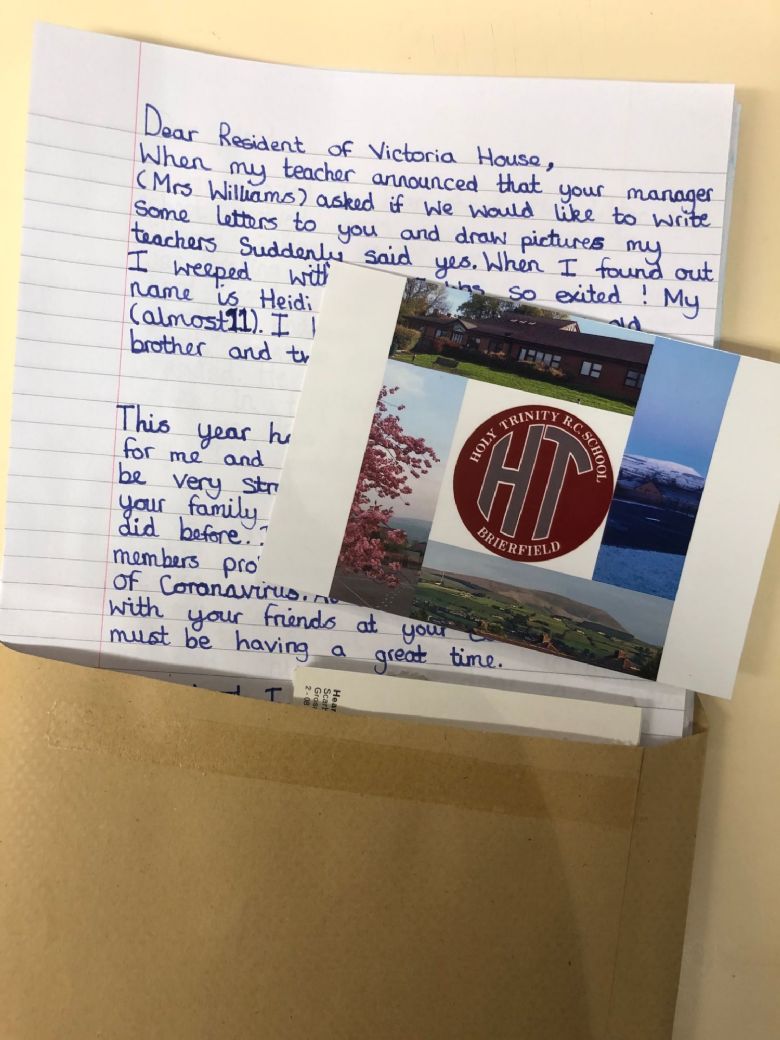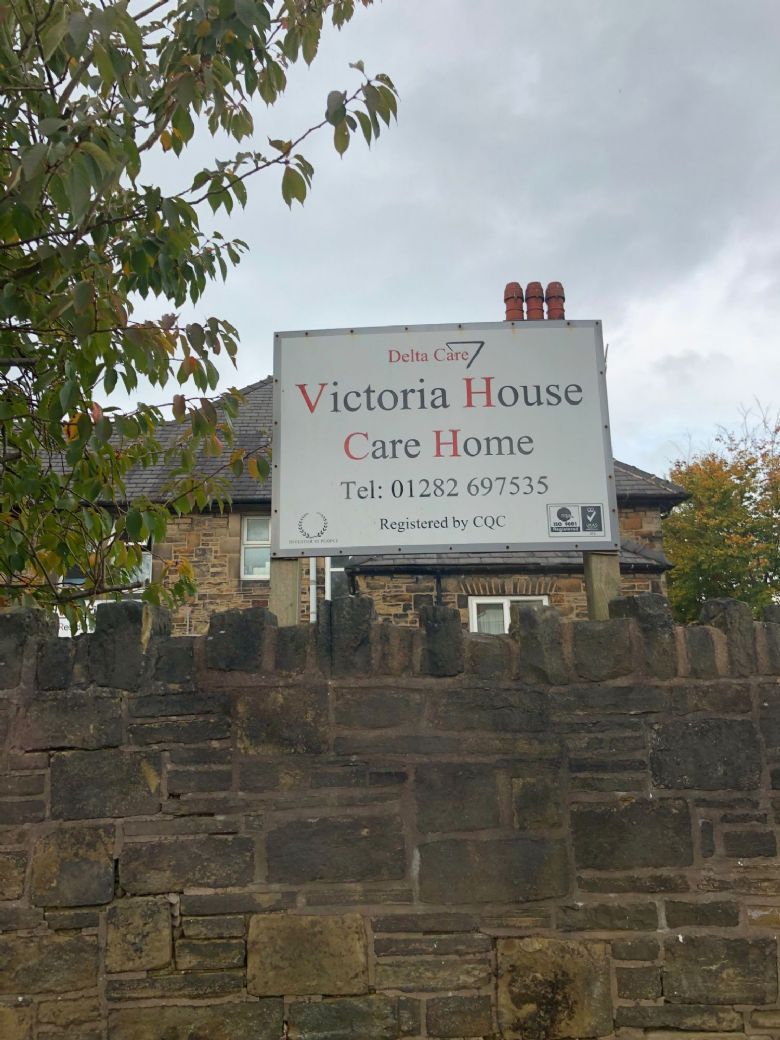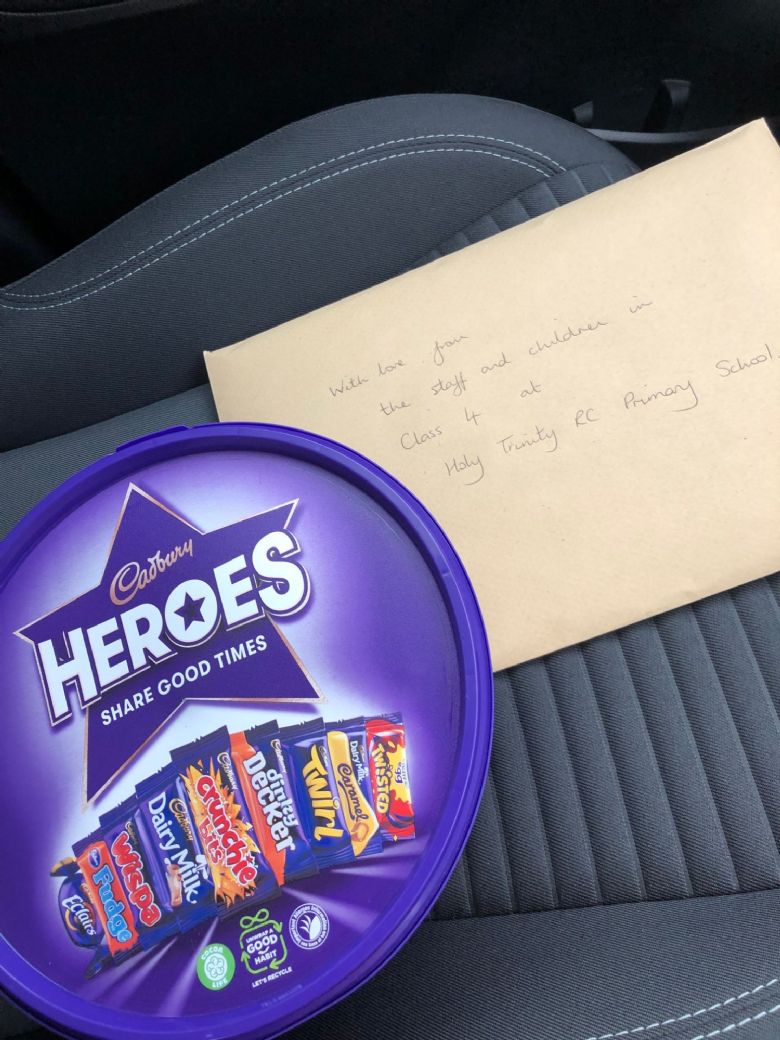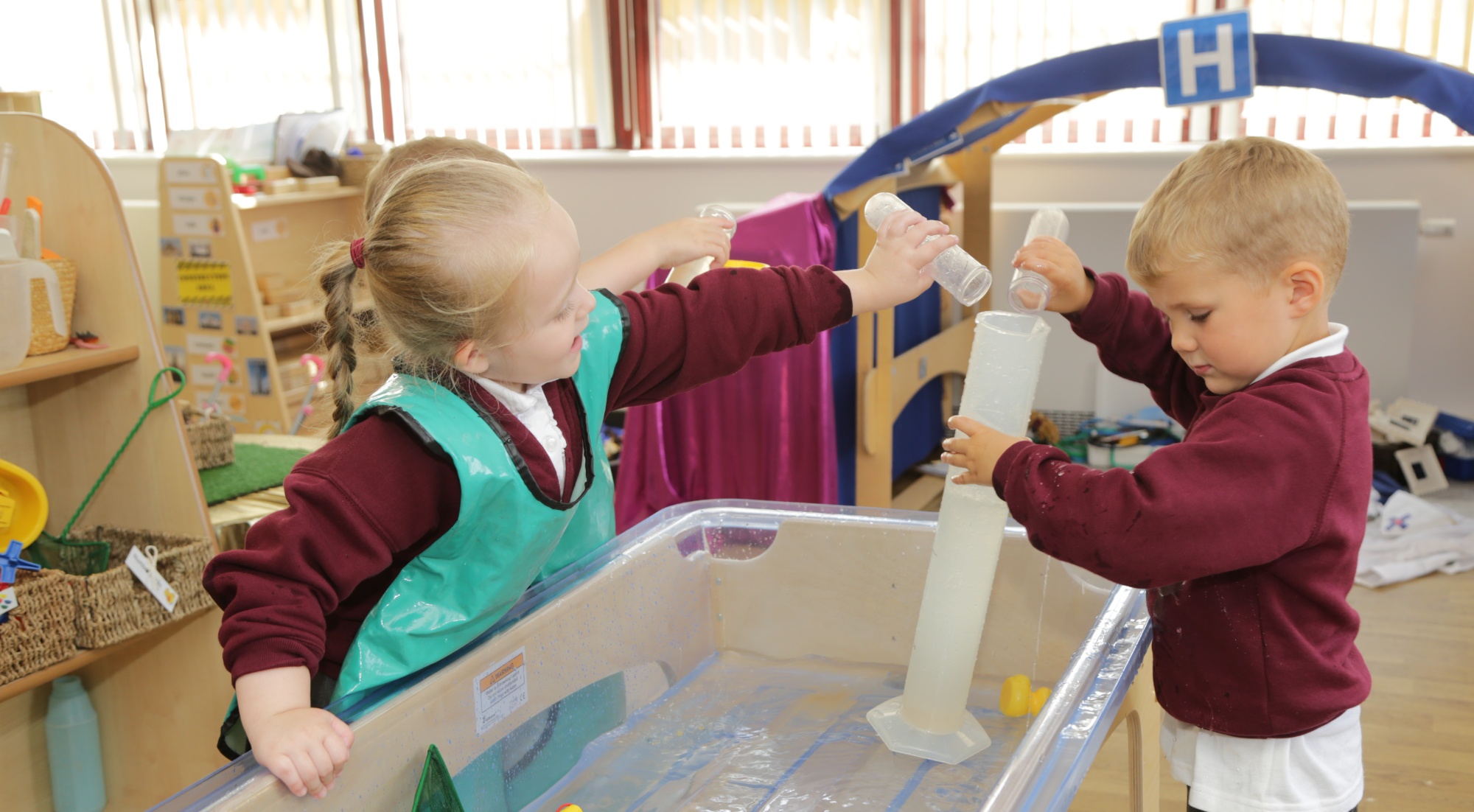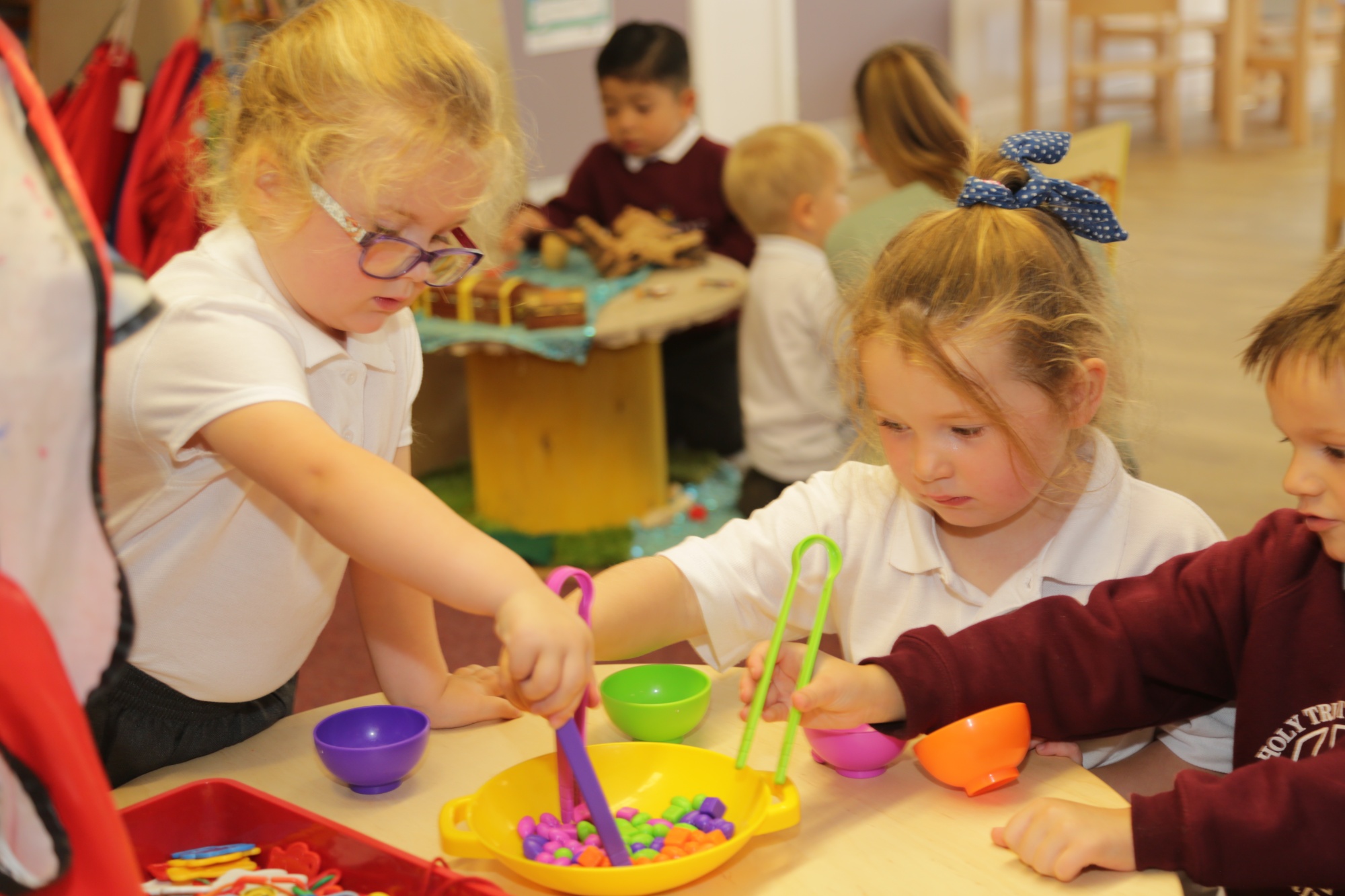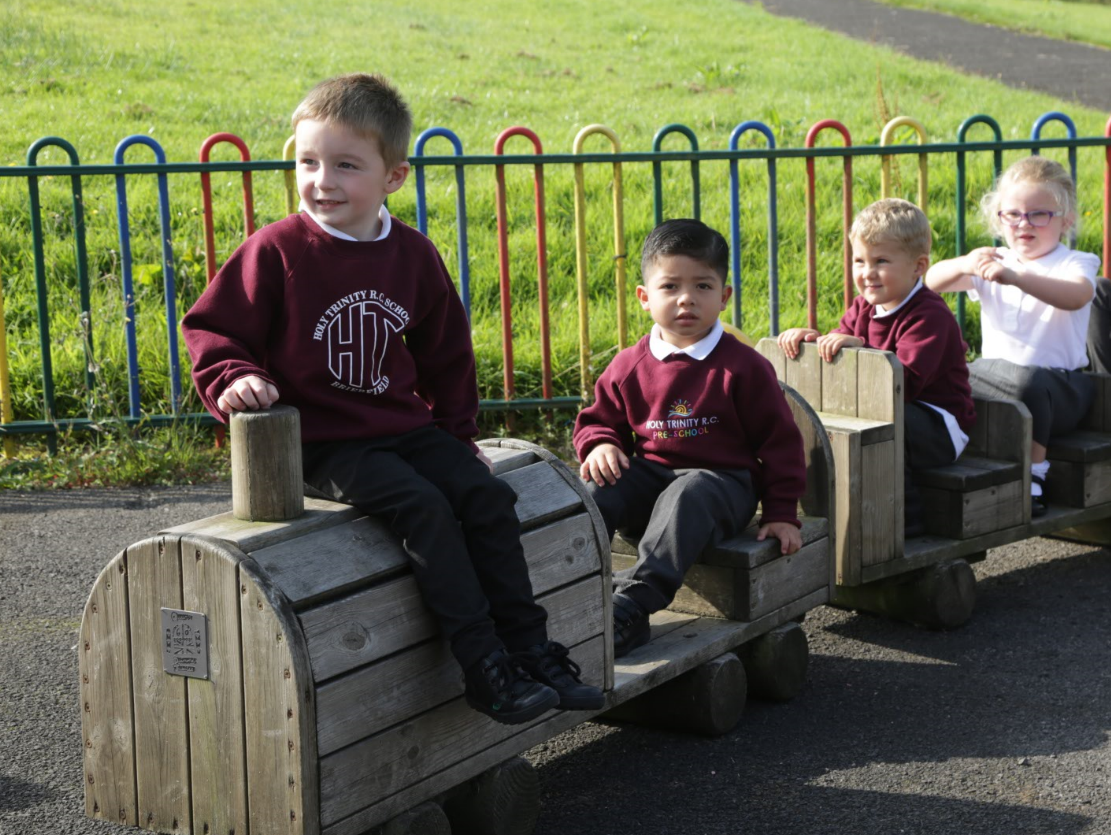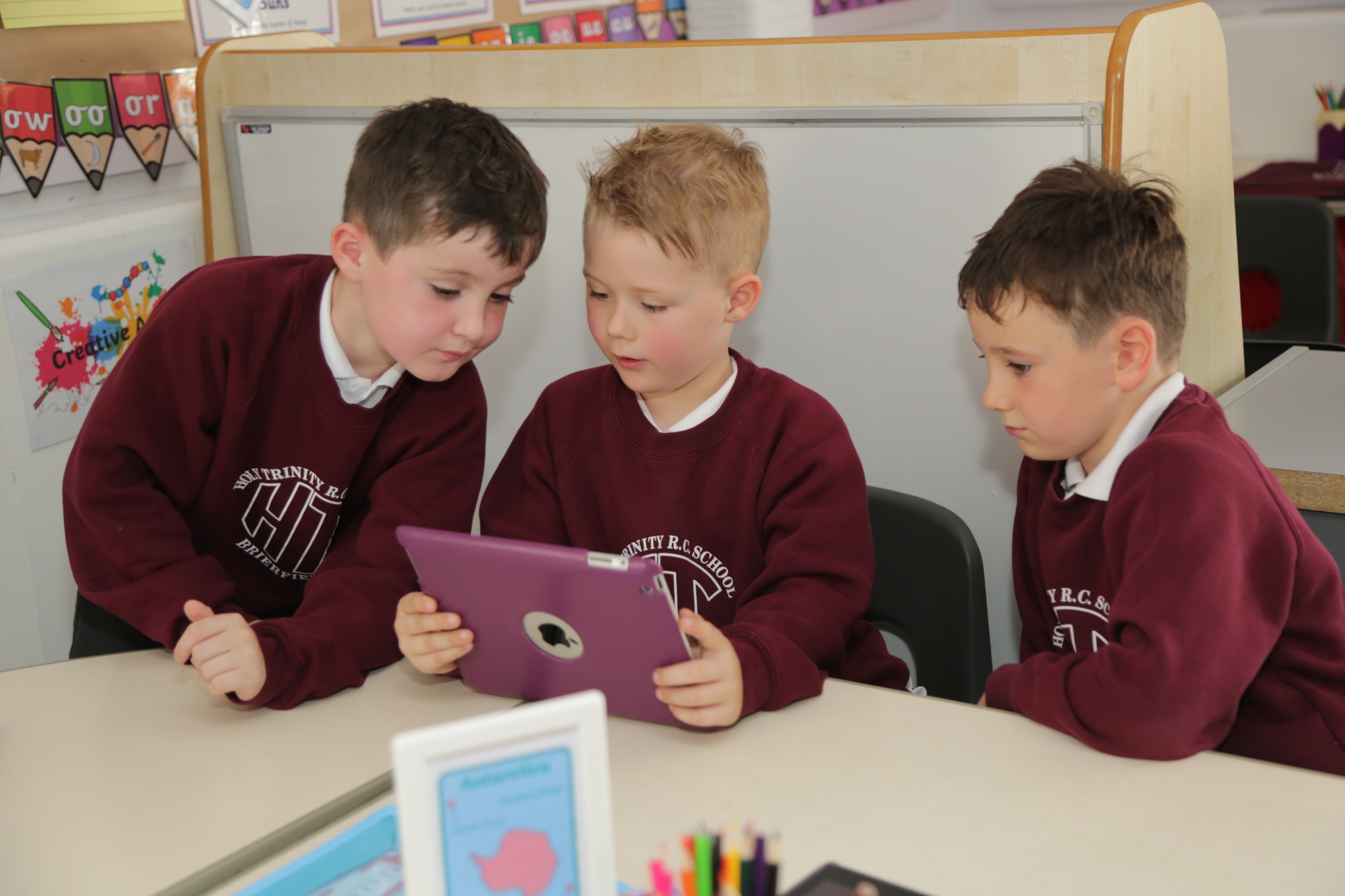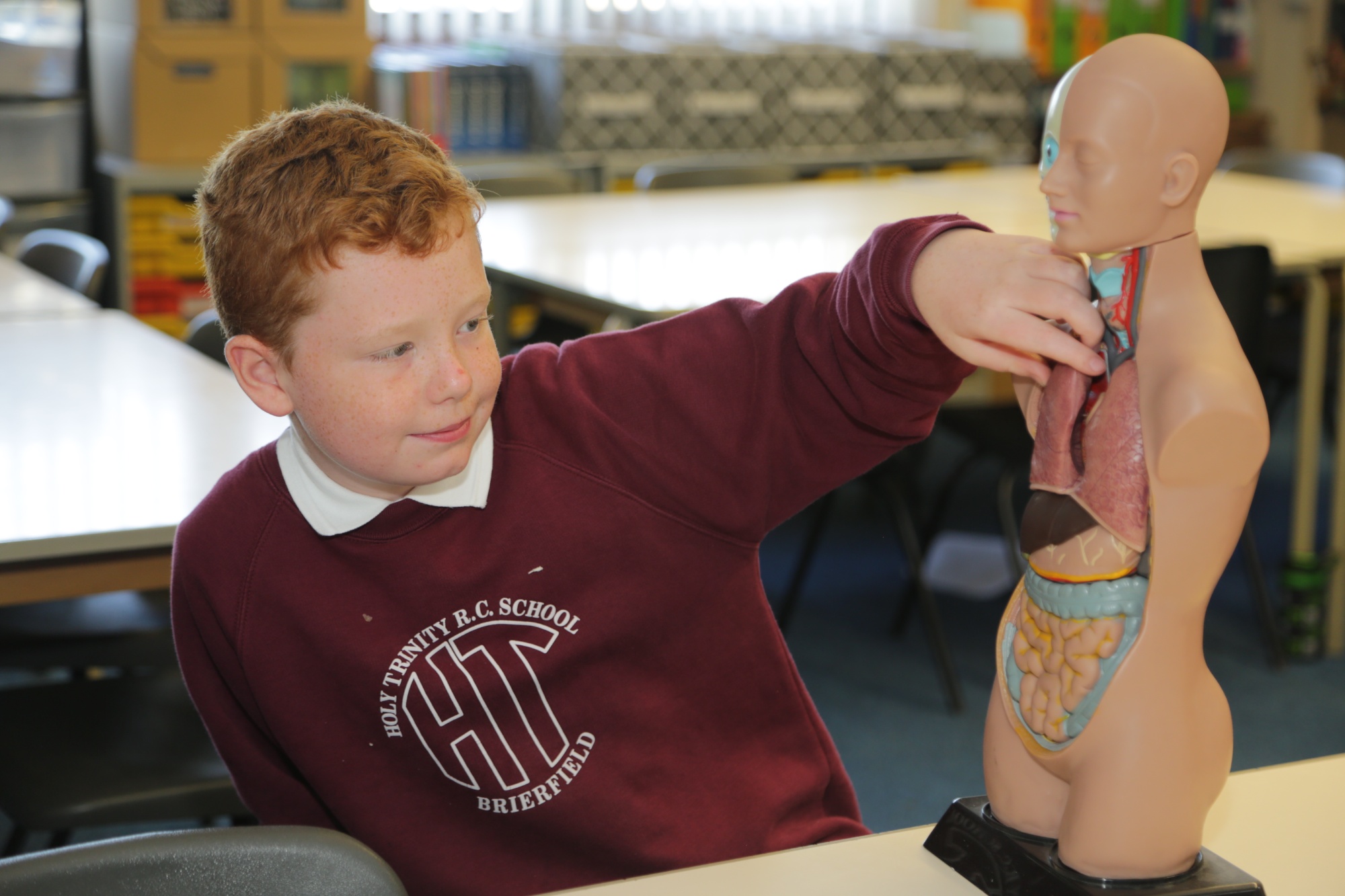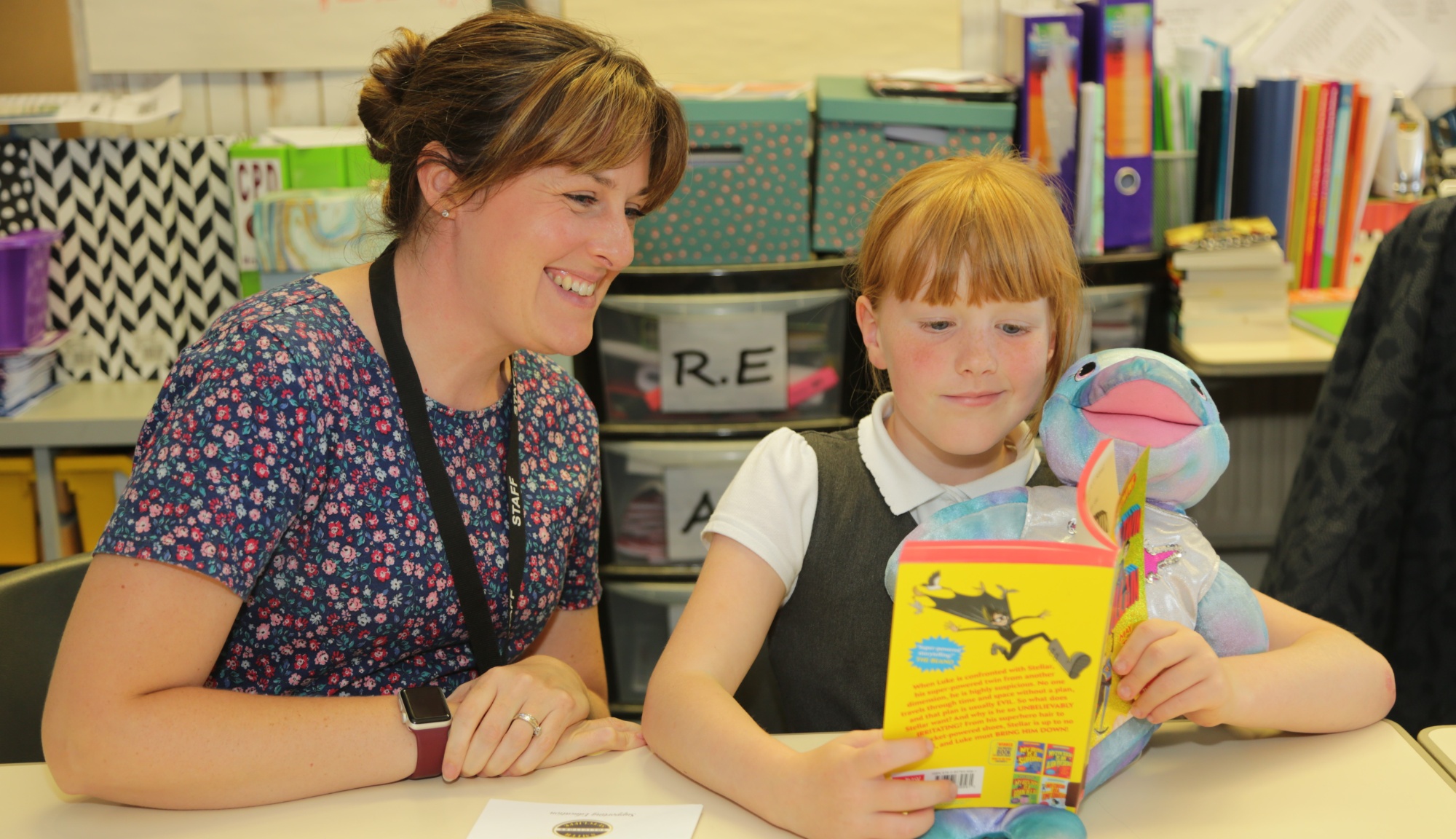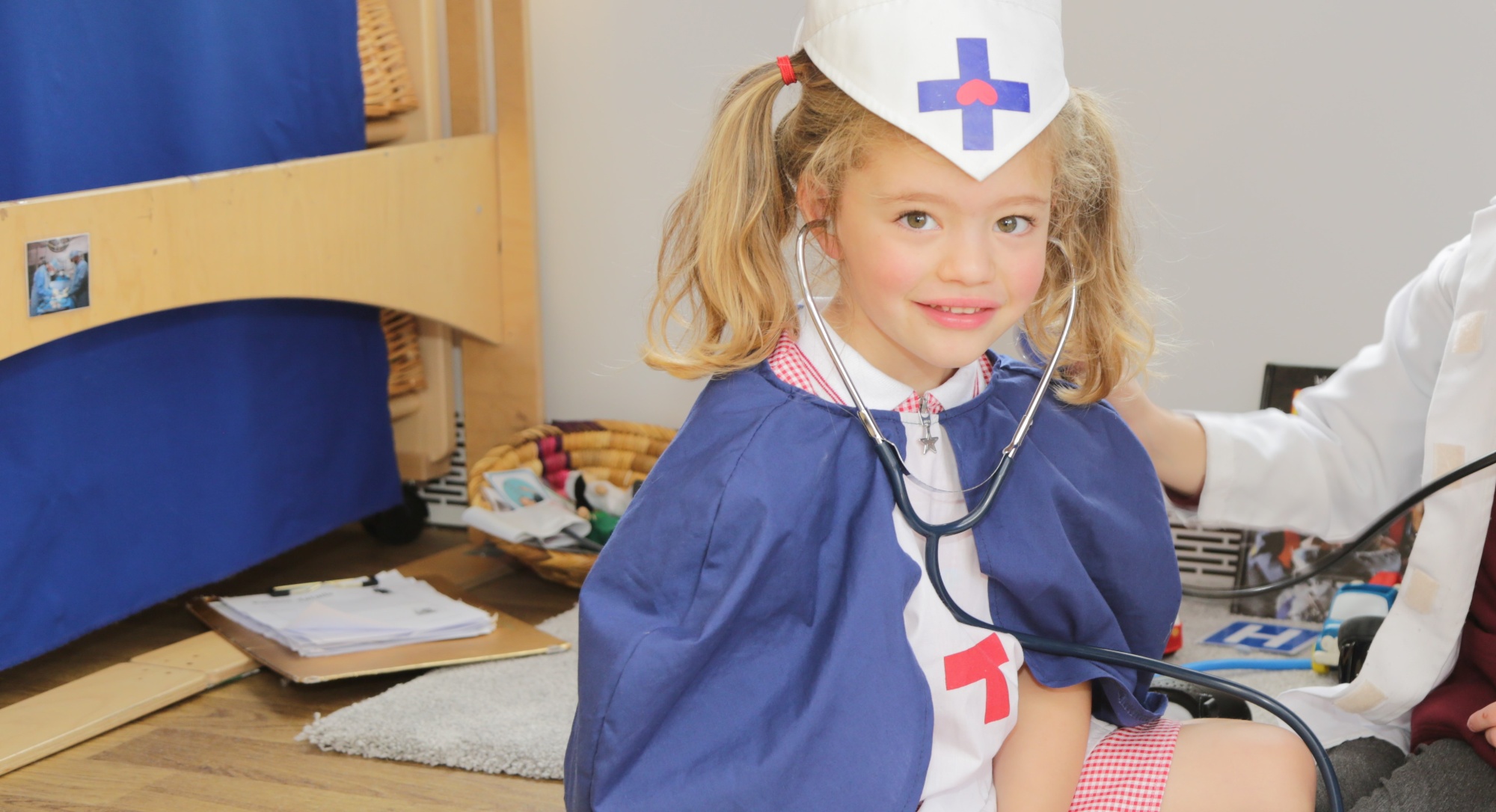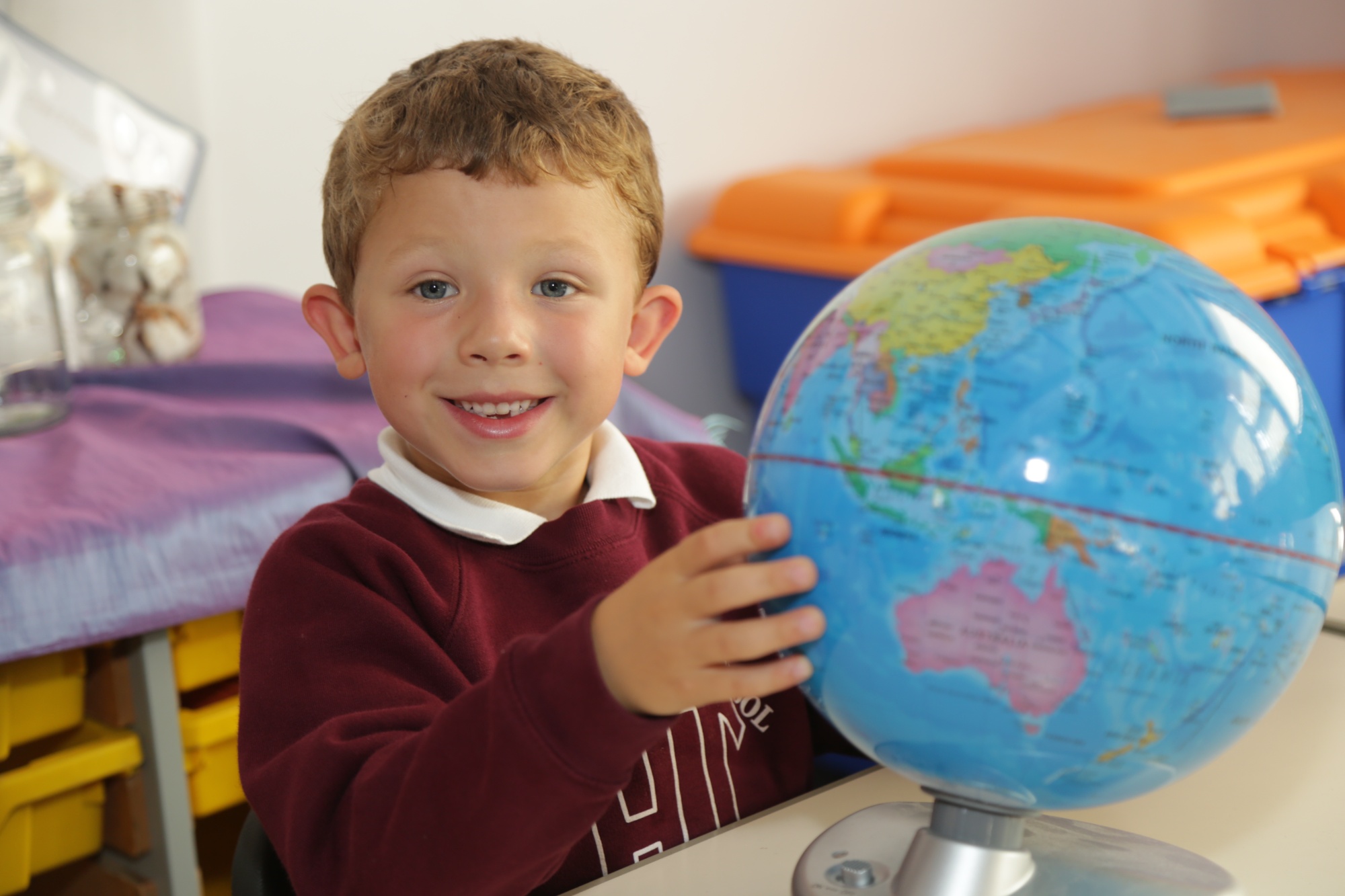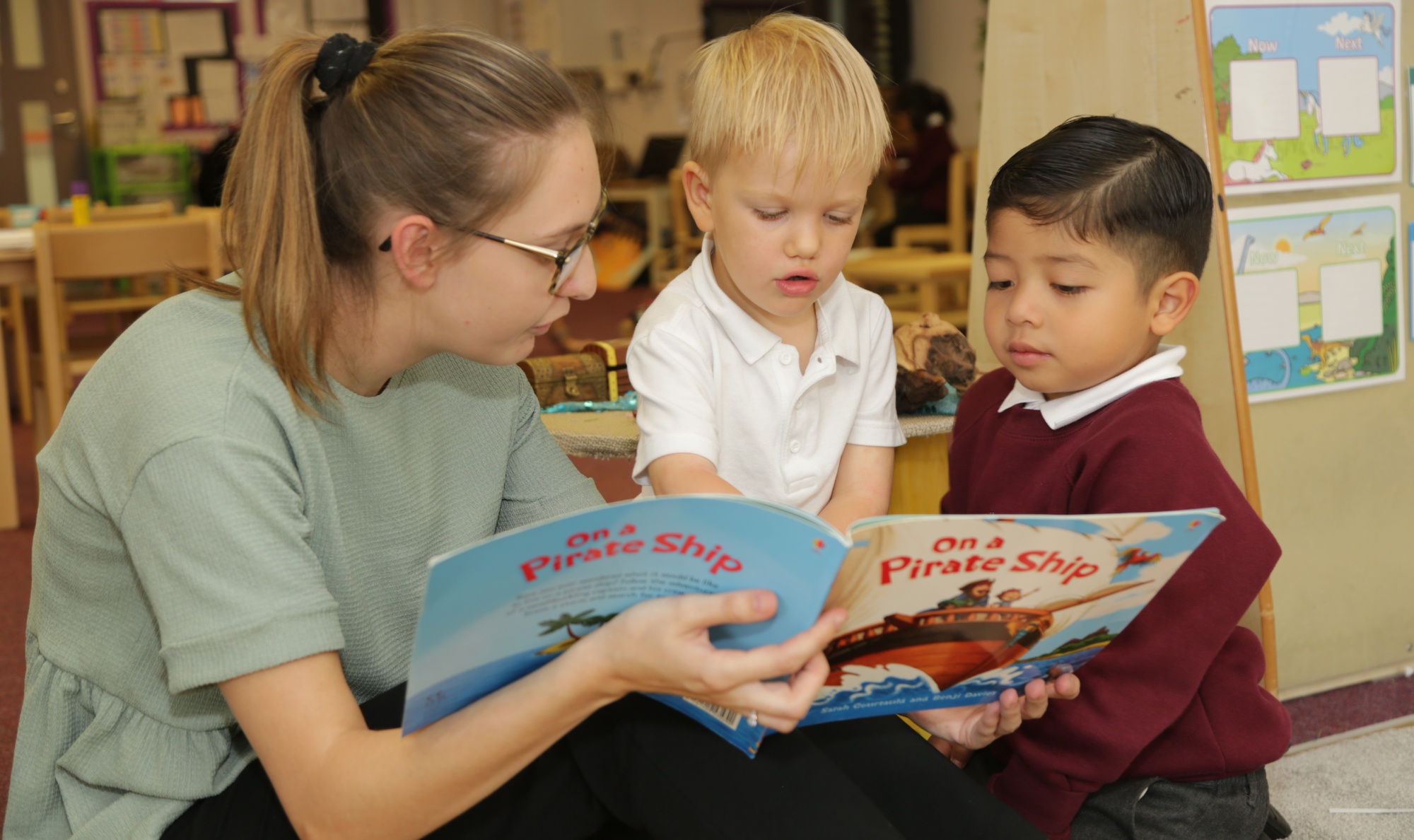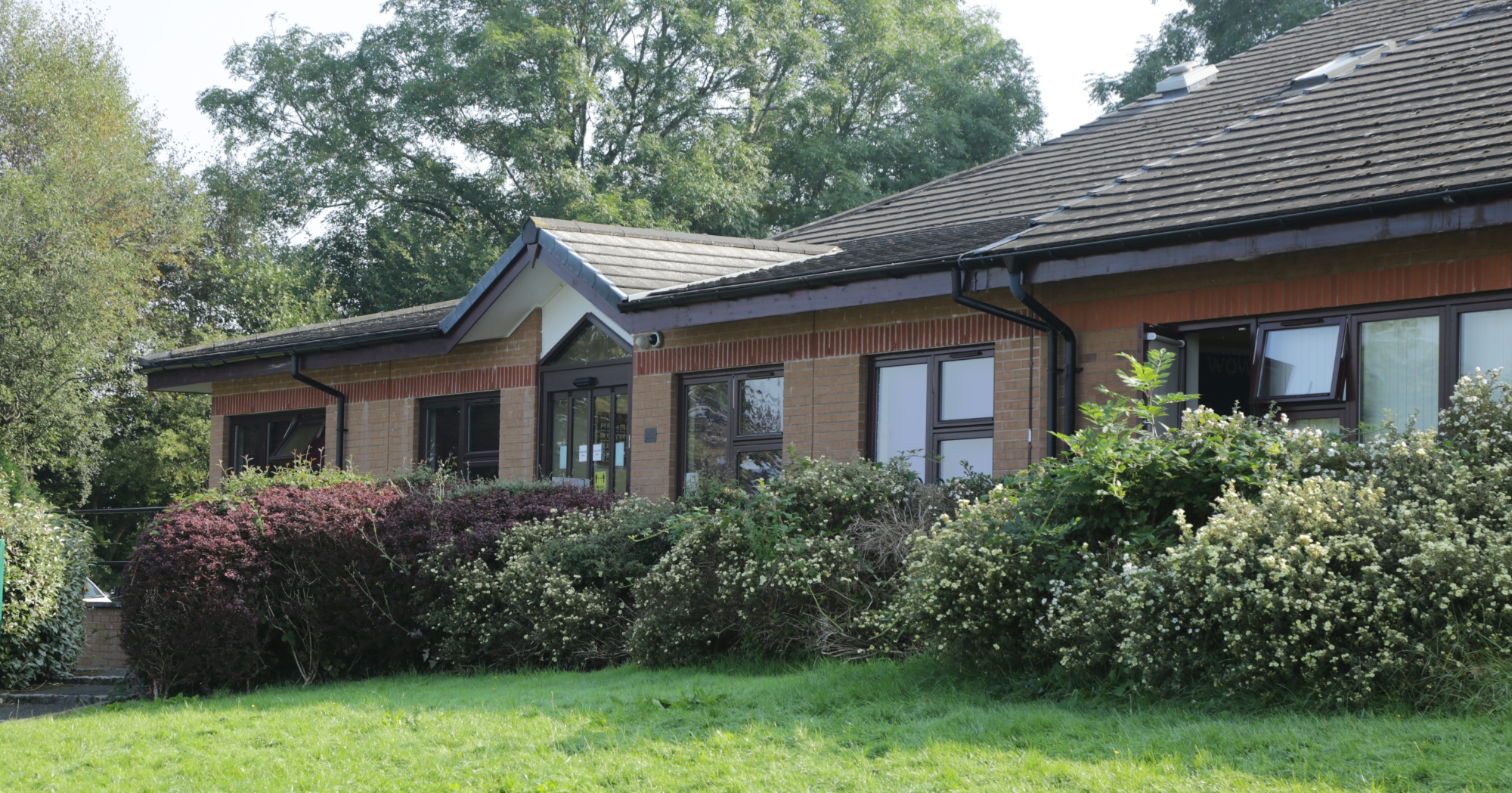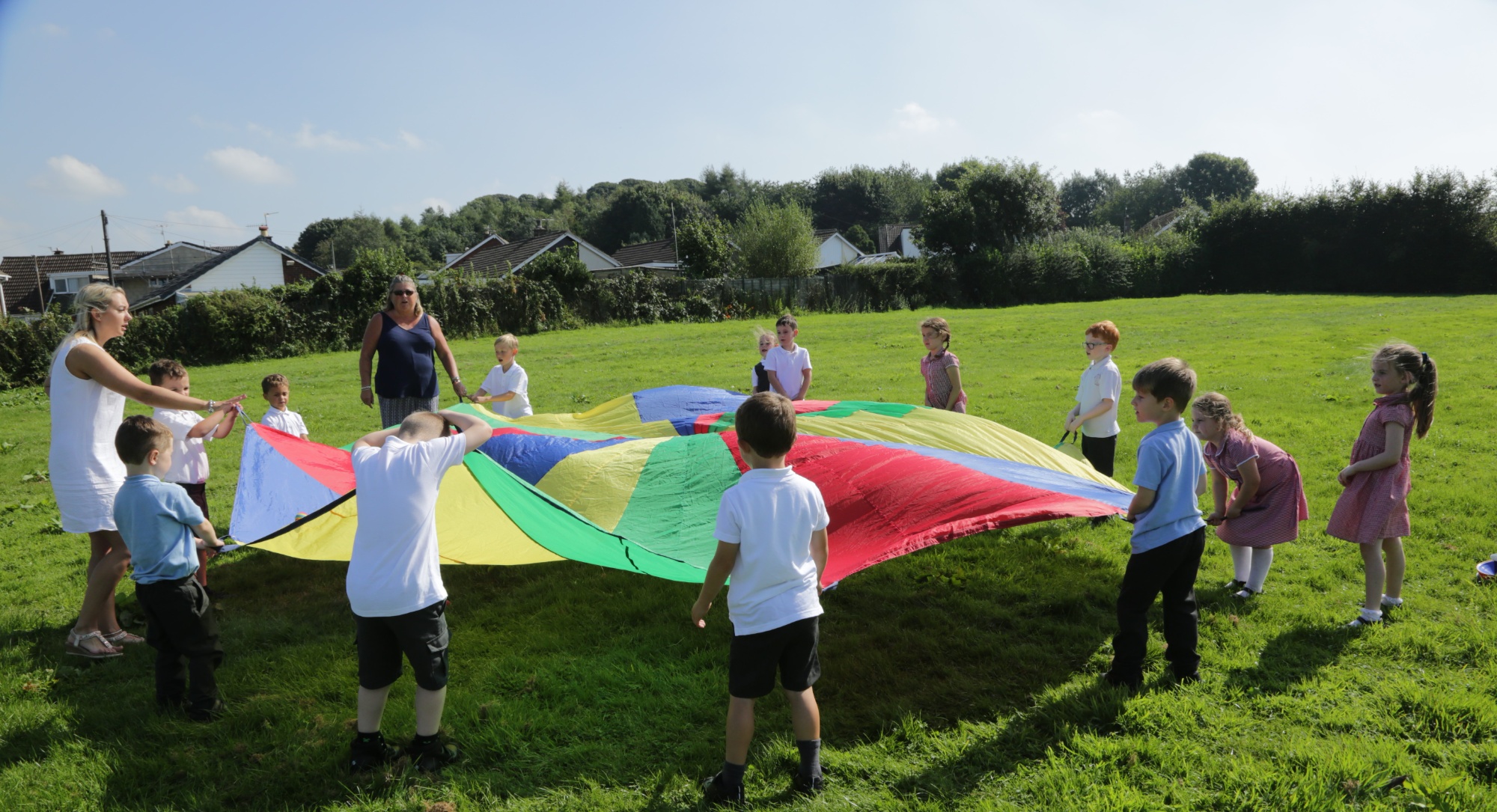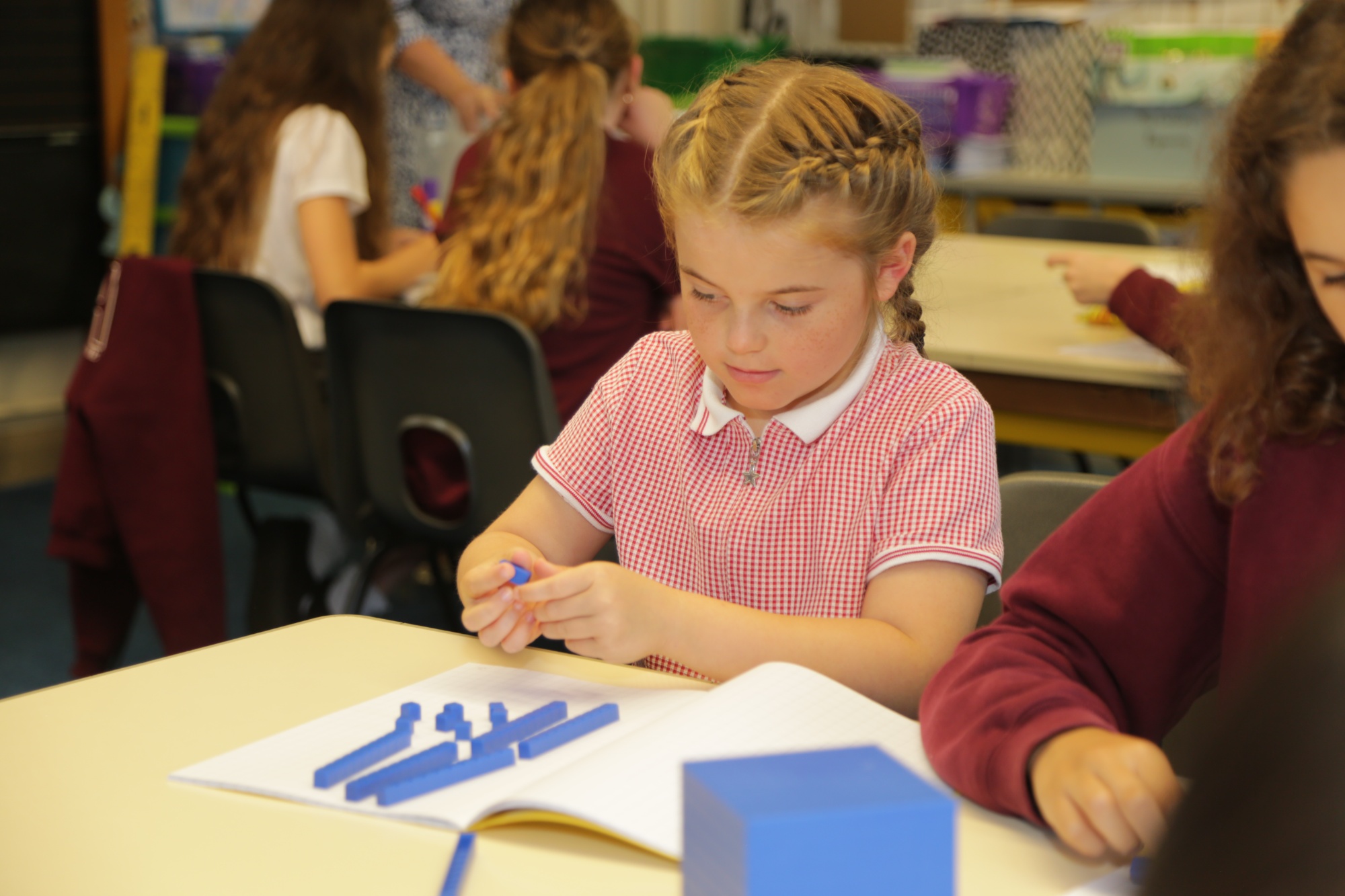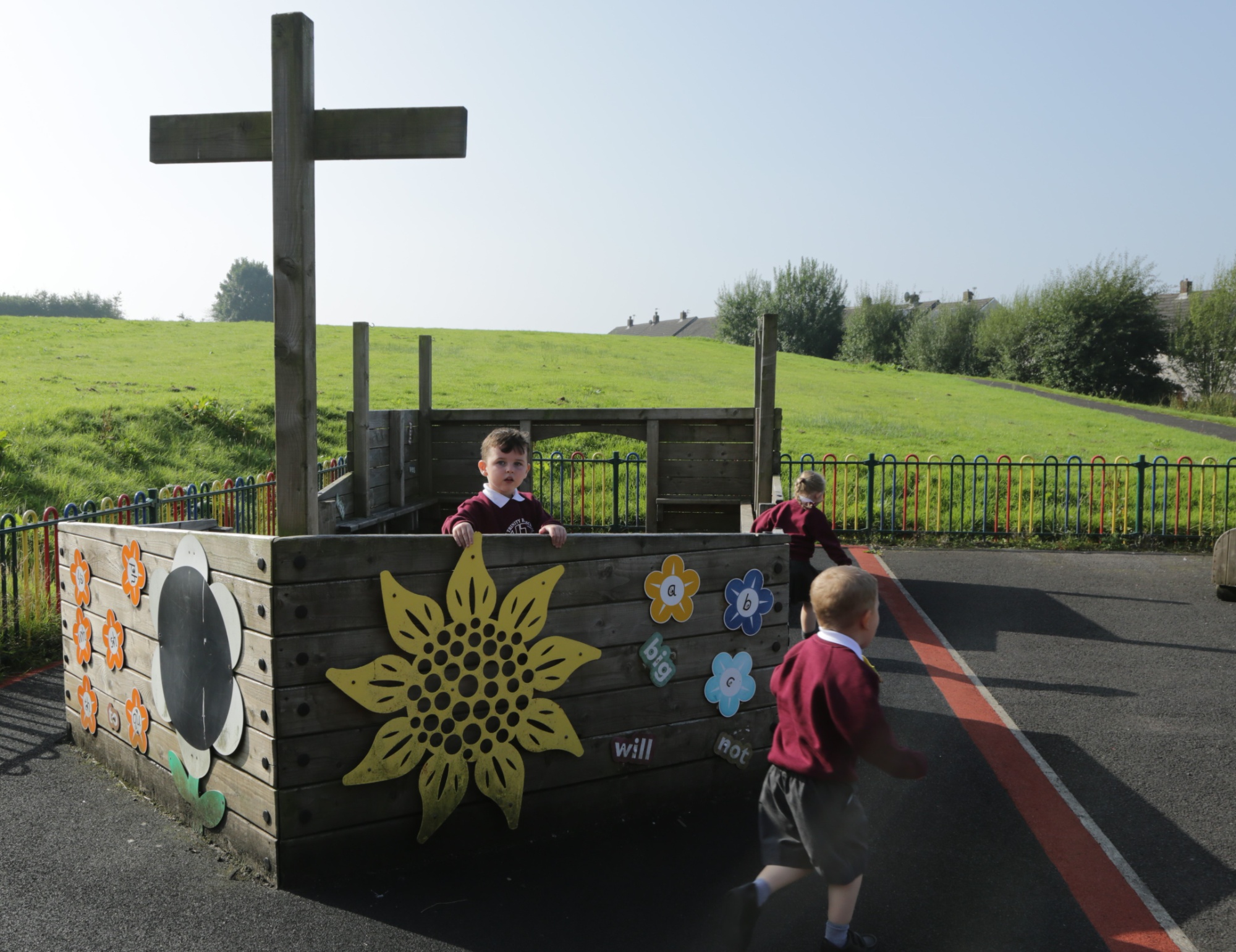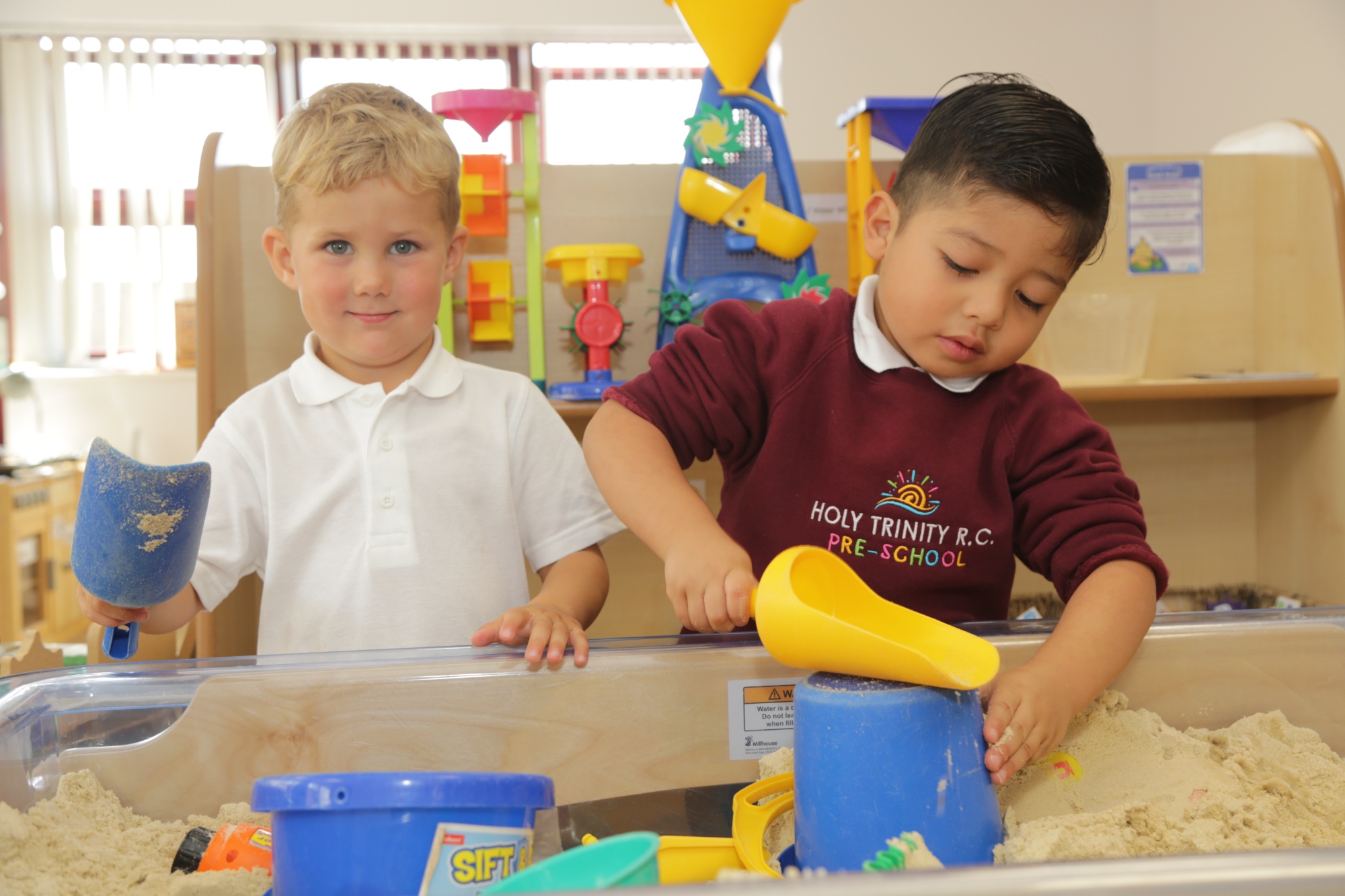
PSHE/RSE
PSHE (Personal Social Health and Economic) Education and RSE (Relationship and Sex Education)– Life to the Full
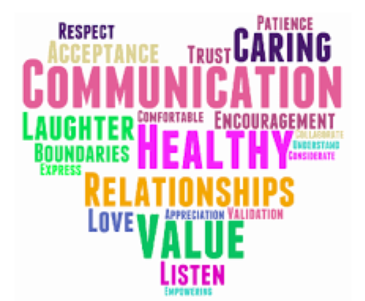
At Holy Trinity Primary School we are committed to the education of the whole child through a broad and balanced curriculum. This includes the teaching of RSE (Relationships and Sex Education) and PSHE (Personal, Social and Health Education) at a level which is appropriate to the age and stage of development of our children.
We believe that the teaching about human love and relationships must have the teachings of Jesus at its core and promote Catholic virtues as well as equipping all children with the clear and scientific information they need to maintain successful and happy relationships and healthy minds and bodies.
RSE and PSHE may be taught explicitly or through Science, PE and RE lessons and each will be informed by the other.
We aim to teach the PSHE curriculum, through a weekly PSHE programme called Coram Education. Coram is a whole school programme from EYFS to year 6. It brings together emotional literacy, mindfulness, social skills and spiritual development. As part of the school ethos, Coram enhances and brings to life the British Values and SMSC (social, moral, spiritual and cultural) curriculum.

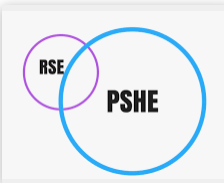
As a Catholic school, we have decided to adopt ‘Life to the Full’ by ‘Ten Ten’ to deliver RSE in our school. Ten Ten is an award-winning Catholic educational organisation that is well-respected and very experienced in this field of work, this scheme has been approved by our diocese. All the sessions are age-appropriate and meet the needs of all pupils in the class.
Documents are available to view at the bottom of the page (overview of topics, progression of skills etc...)
The Life to the Full programme is based on ‘A Model Catholic RSE Curriculum’ by the Catholic Education Service which was highlighted as a work of good practice by the Department of Education. Therefore, we have confidence that the programme will be fit for purpose in supporting the growth and development of the children of Holy Trinity.
The programme adopts a spiral approach so that as children go through the programme year-after-year, their learning will develop and grow, with each stage building on the last.
1. Module One: Created and Loved by God
1.1 Module One: Created and Loved by God explores the individual. Rooted in the teaching that we are made in the image and likeness of God, it helps children to develop an understanding of the importance of valuing themselves as the basis for personal relationships.
1.2 In these sessions, we explore:
Key Stage One (Years 1 & 2) – that we are uniquely made by a loving God, that we have differences and similarities (including physical differences between boys and girls), key information about staying physically healthy, understanding feelings and emotions, including strong feelings such as anger, and the cycle of life from birth to old age.
Lower Key Stage Two (Years 3 & 4) – understanding differences, respecting our bodies, puberty and changing bodies (recommended for Year 4+), strategies to support emotional wellbeing including practicing thankfulness, and the development of pupils understanding of life before birth.
Upper Key Stage Two (Years 4 & 5)– appreciation of physical and emotional differences, a more complex understanding of physical changes in girl and boys bodies, body image, strong emotional feelings, the impact of the internet and social media on emotional well-being, a more nuanced and scientific understanding of life in the womb and how babies are made, and menstruation.
2. Module Two: Created to Love Others
2.1 Module Two: Created to Love Others explores the individual’s relationship with others. Building on the understanding that we have been created out of love and for love, this unit explores how we take this calling into our family, friendships and relationships, and teaches strategies for developing heathy relationships and keeping safe.
2.2 This religious understanding is then applied to real-world situations relevant to the age and stage of the children:
Key Stage One – In the Unit ‘Personal Relationships’, children are taught to identify the Special People in their lives who they love and can trust, how to cope with various social situations and dilemmas, and the importance of saying sorry and forgiveness within relationships. In the Unit ‘Keeping Safe’, we explore the risks of being online by incorporating the ‘Smartie the Penguin’ resources from Childnet, the difference between good and bad secrets, and teaching on physical boundaries (incorporating the PANTS resource the NSPCC).
Lower Key Stage Two – The sessions here help children to develop a more complex appreciation of different family structures and there are activities and strategies to help them develop healthy relationships with family and friends; here, they are also taught simplified Cognitive Behavioral Therapy (CBT) techniques for managing thoughts, feelings and actions.
Upper Key Stage Two – The sessions in the ‘Personal Relationships’ module aim to equip children with strategies for more complex experiences of relationships and conflict; this includes sessions that help children to identify and understand how to respond to spoken and unspoken pressure, the concept of consent and some practical demonstrations of this, and further teaching on how our thoughts and feelings have an impact on how we act.
3. Module Three: Created to Live in Community
3.1 Module Three: Created to Live in Community explores the individual’s relationship with the wider world. Here we explore how human beings are relational by nature and are called to love others in the wider community through service, through dialogue and through working for the Common Good.
3.2 In the first Unit, Religious Understanding, the story sessions help children to develop a concept of the Trinity.
3.3 In subsequent sessions, we apply this religious understanding to real-world situations, such as the community we live in, and through exploring the work of charities which work for the Common Good.
The scheme is fully compliant with DfE’s guidance on PSHE and with the statutory requirements of RSE. It is recommended by Salford Dioceses for use in schools. We aim to introduce the programme at St John’s in the Spring Term.
There is an online parents and carers platform which gives a useful overview of the scheme. To access the online platform please visit:
www.tentenresources.co.uk/parent-portal
Please contact the office for login details.
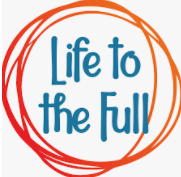

Themes and topics covered by the end of the primary phase.
Relationships education
-
Families and people who care for me
-
Caring relationships
-
Respectful relationships
-
Online relationships
-
Being safe
Physical health and mental well-being
-
Mental wellbeing
-
Internet safety and harms
-
Physical health and fitness
-
Healthy eating
-
Drugs alcohol and tobacco
-
Health and prevention
-
Basic first aid
-
Changing adolescent body
All teaching RSE will take in a safe learning environment and be underpinned by our school ethos and values. A variety of opportunities will be provided for pupils to ask questions to further their understanding and to find out more about what affects them personally.
See Understanding Relationships and Health Education in your child’s primary school: a guide for parents - below as well as sample lesson plans for RSE
We have some wonderful displays around school to remind the children how wonderful they are!
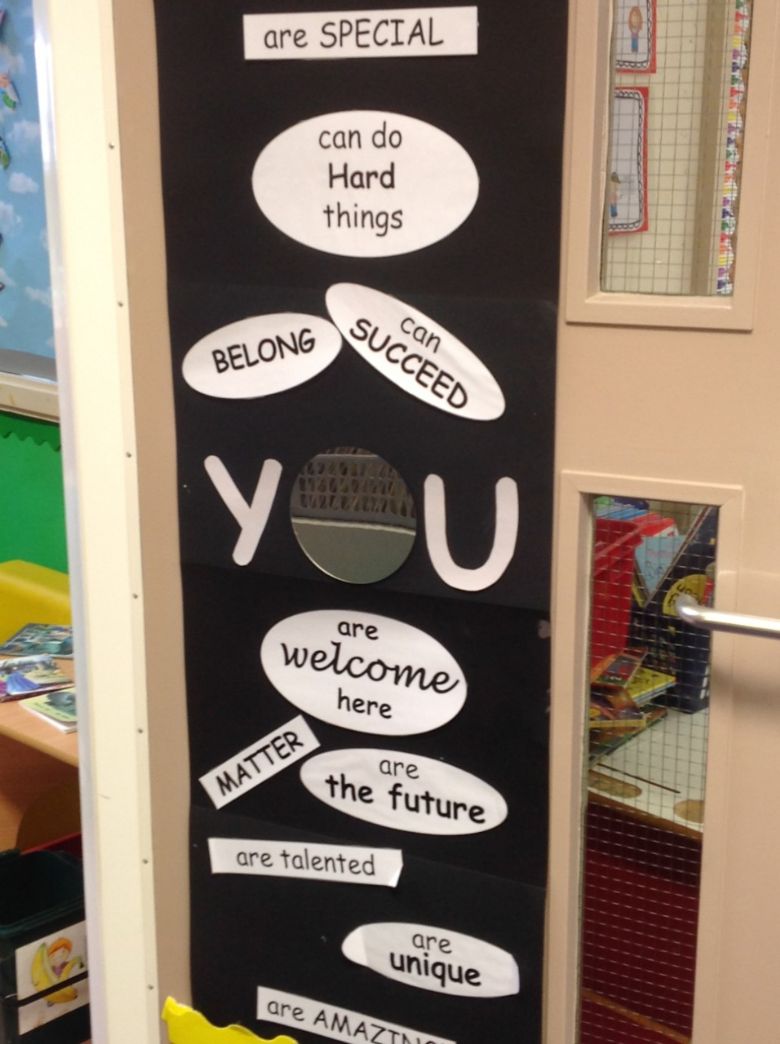
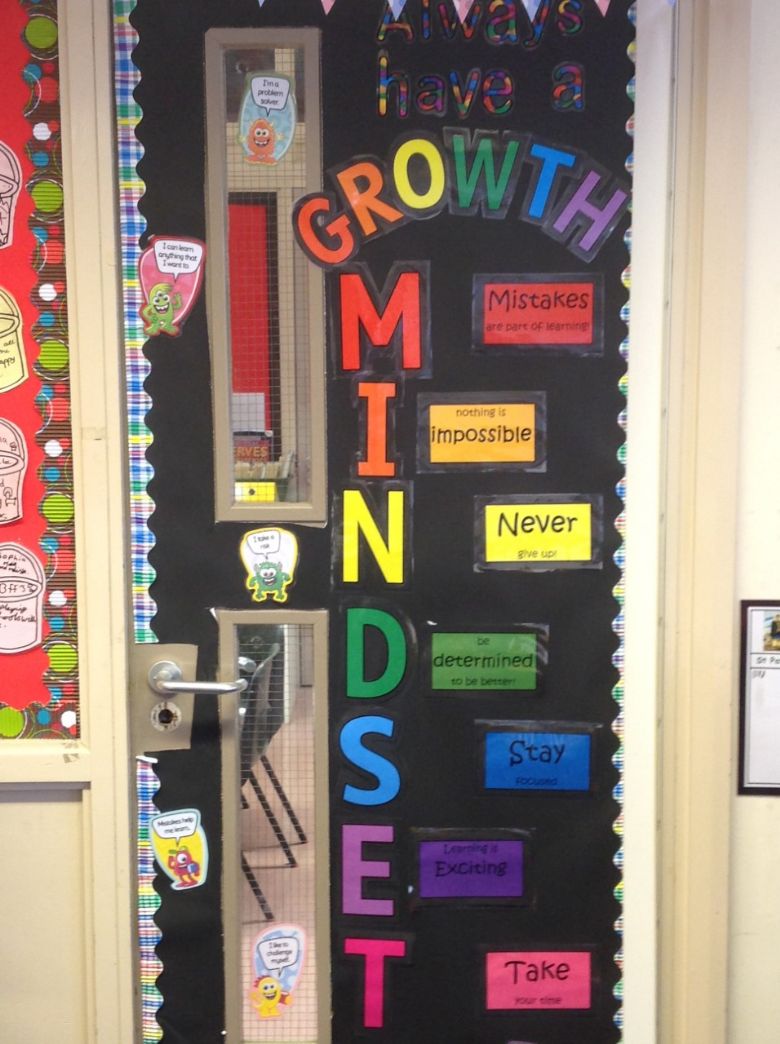
Burnley FC in the Community visited our school to deliver an assembly all about Racism. They held a poster competition and two of our children won a range of BFC goodies!
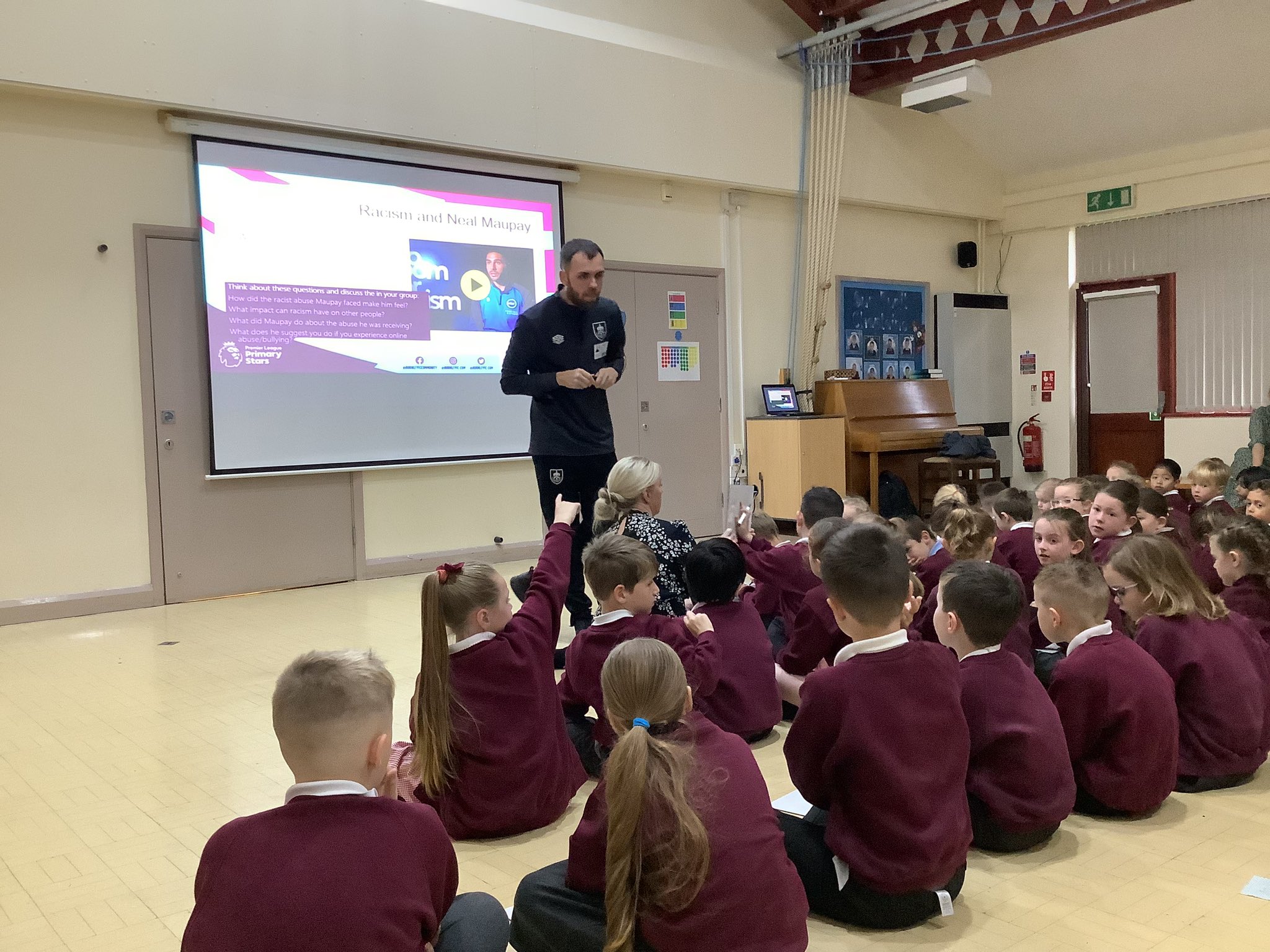
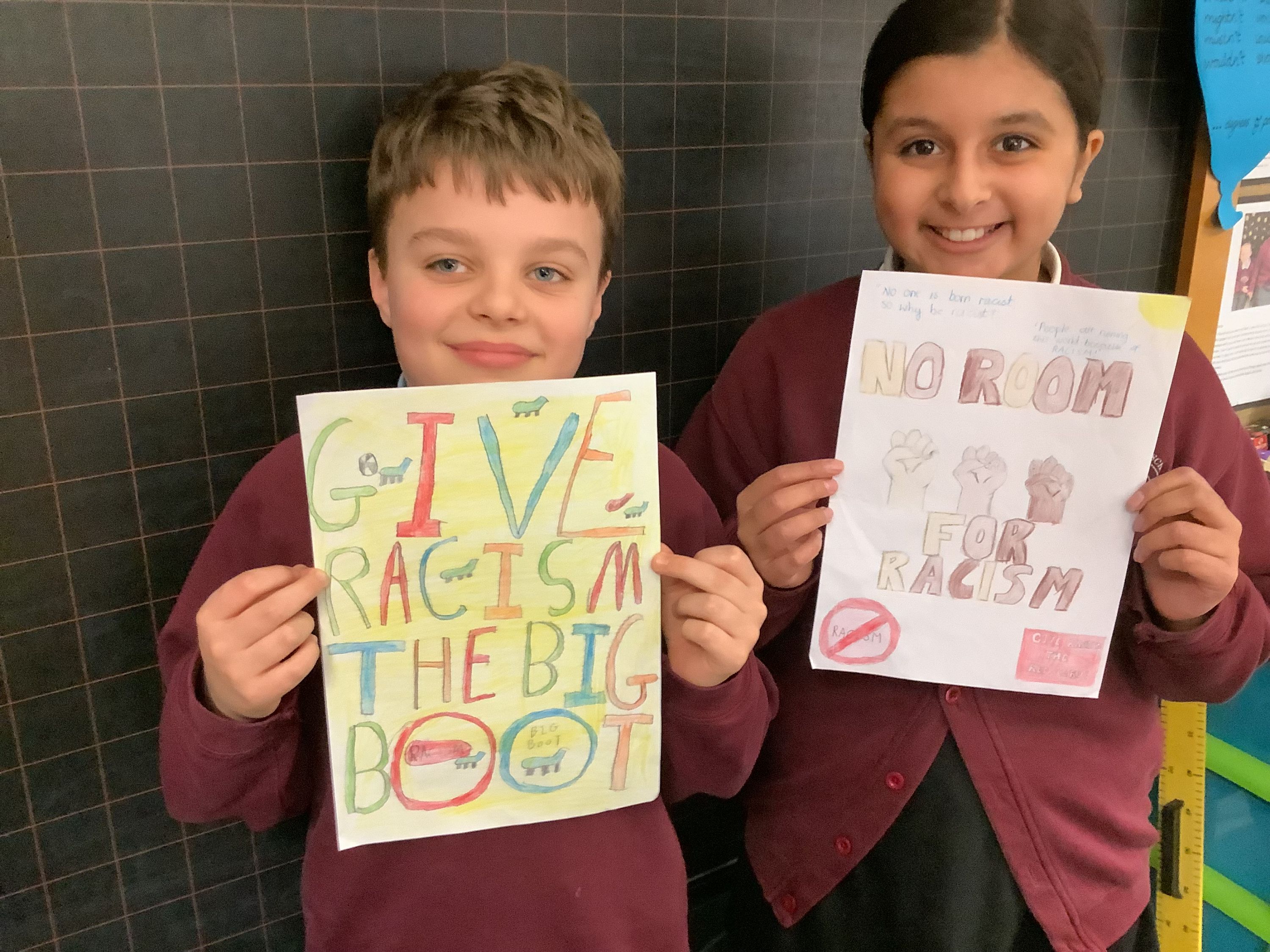
Our local police are regular visitors to talk to classes about various issues such as firework safety.
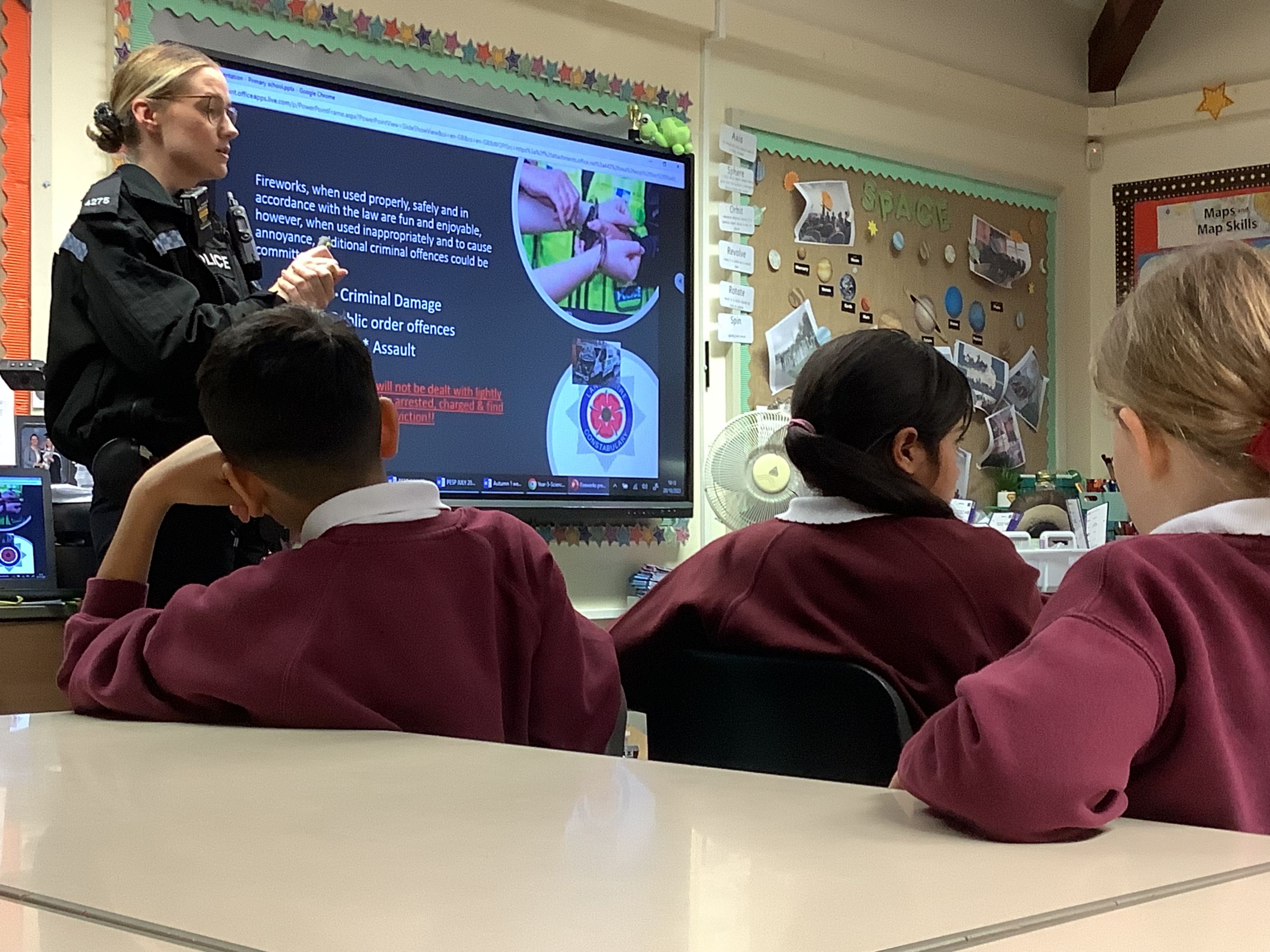
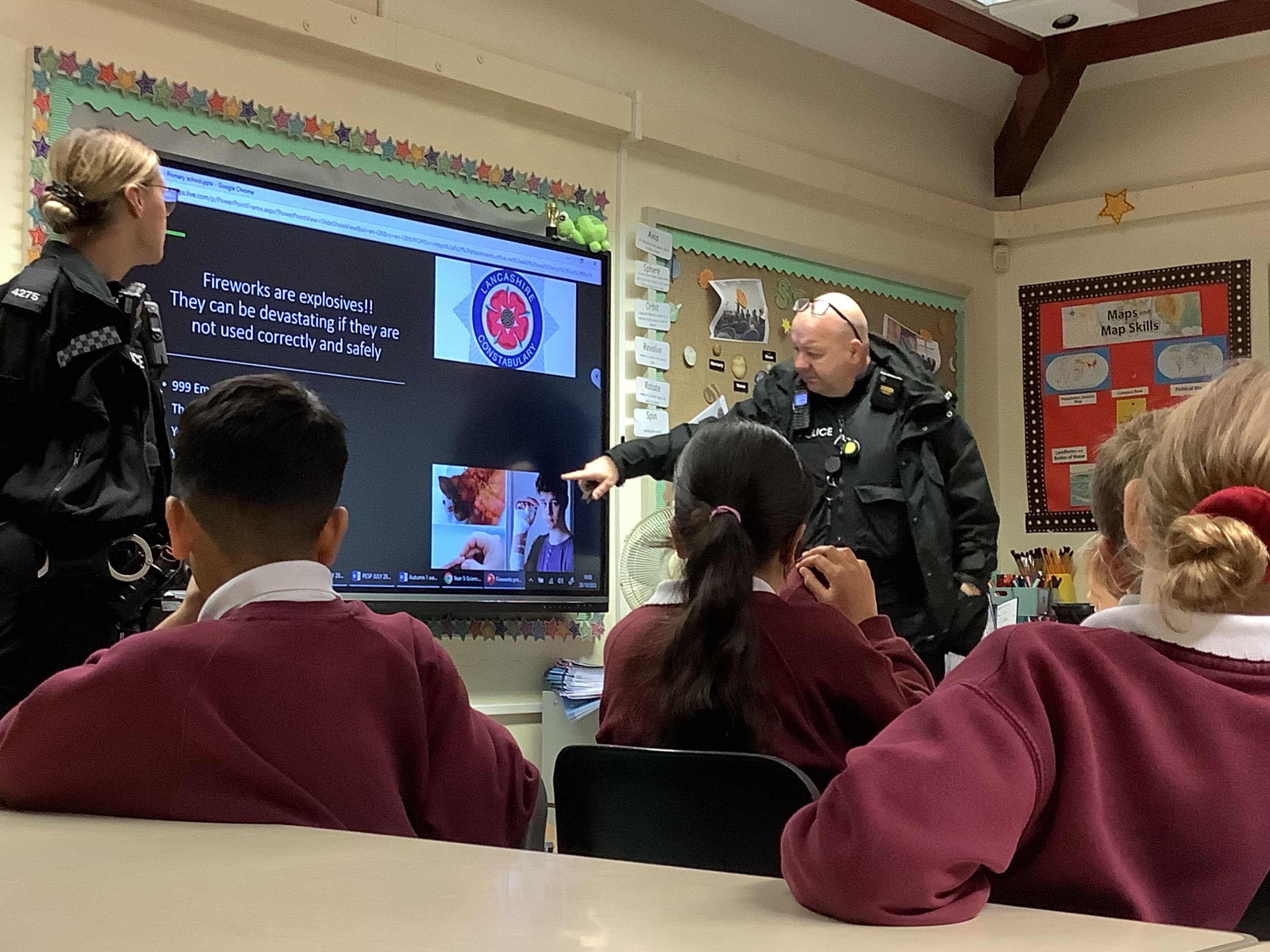
Thank you to Jordan from Burnley FC in the community came and delivered an assembly on Racism. The children were all engaged and learnt about individual and systematic racism.
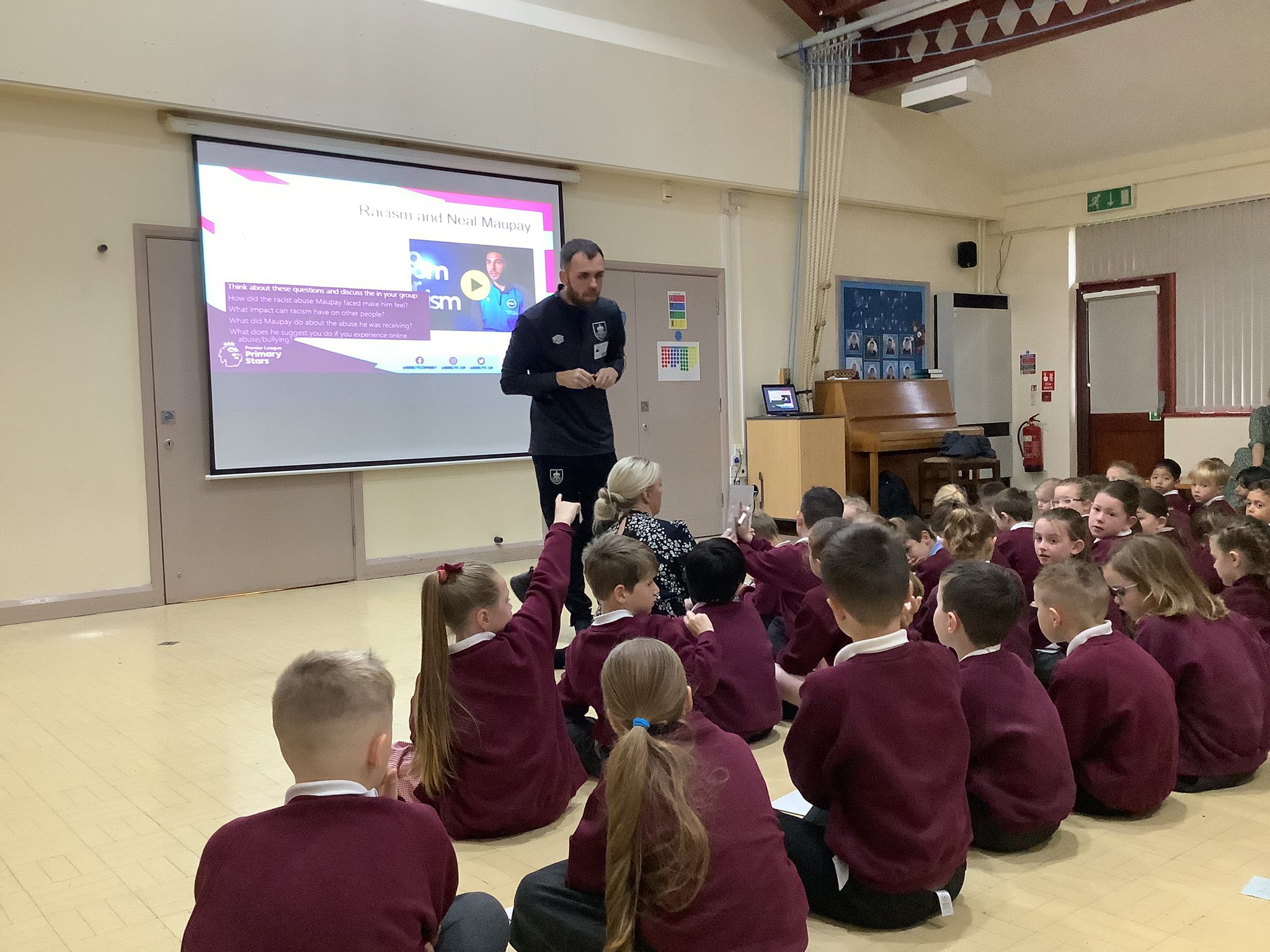
All our classes hold a half-termly assembly. They talk about a wide variety of current topics.
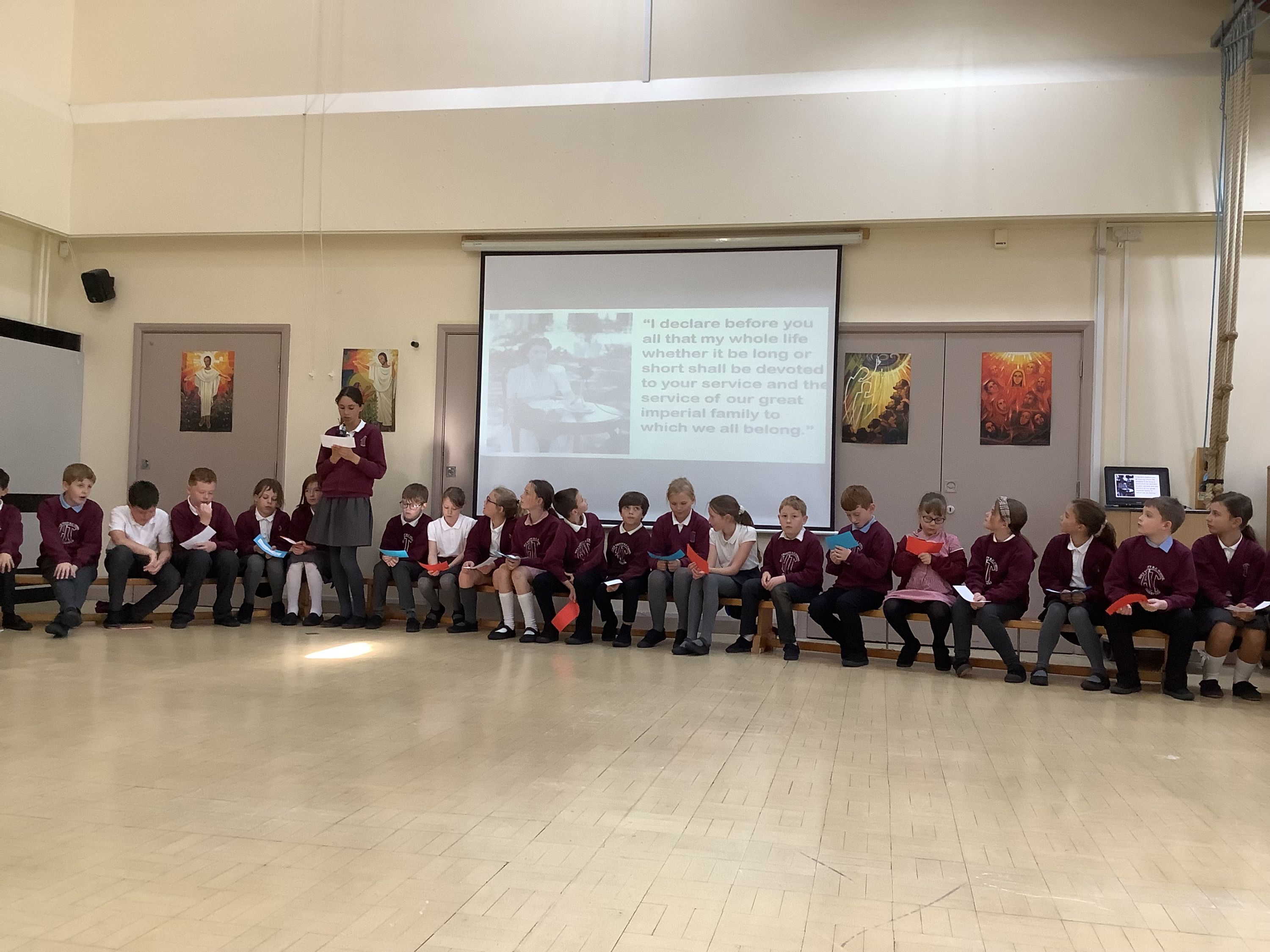
We received a letter from a local care home asking us to write to the residents as they had not been able to see their relatives and families due to COVID-19. Also, some of the residents don't have any family visiting them. Class 4 responded to this task and sent the residents some lovely letters along with some drawings and a tub of chocolates for all the staff and residents. This has been inspirational for the children as it has helped them realise that although the last 7 months have been difficult for us, some of the elderly residents at the home have had a tougher time. Mrs Carlile dropped off the letters and has promised to stay in touch and send Christmas Cards etc.
